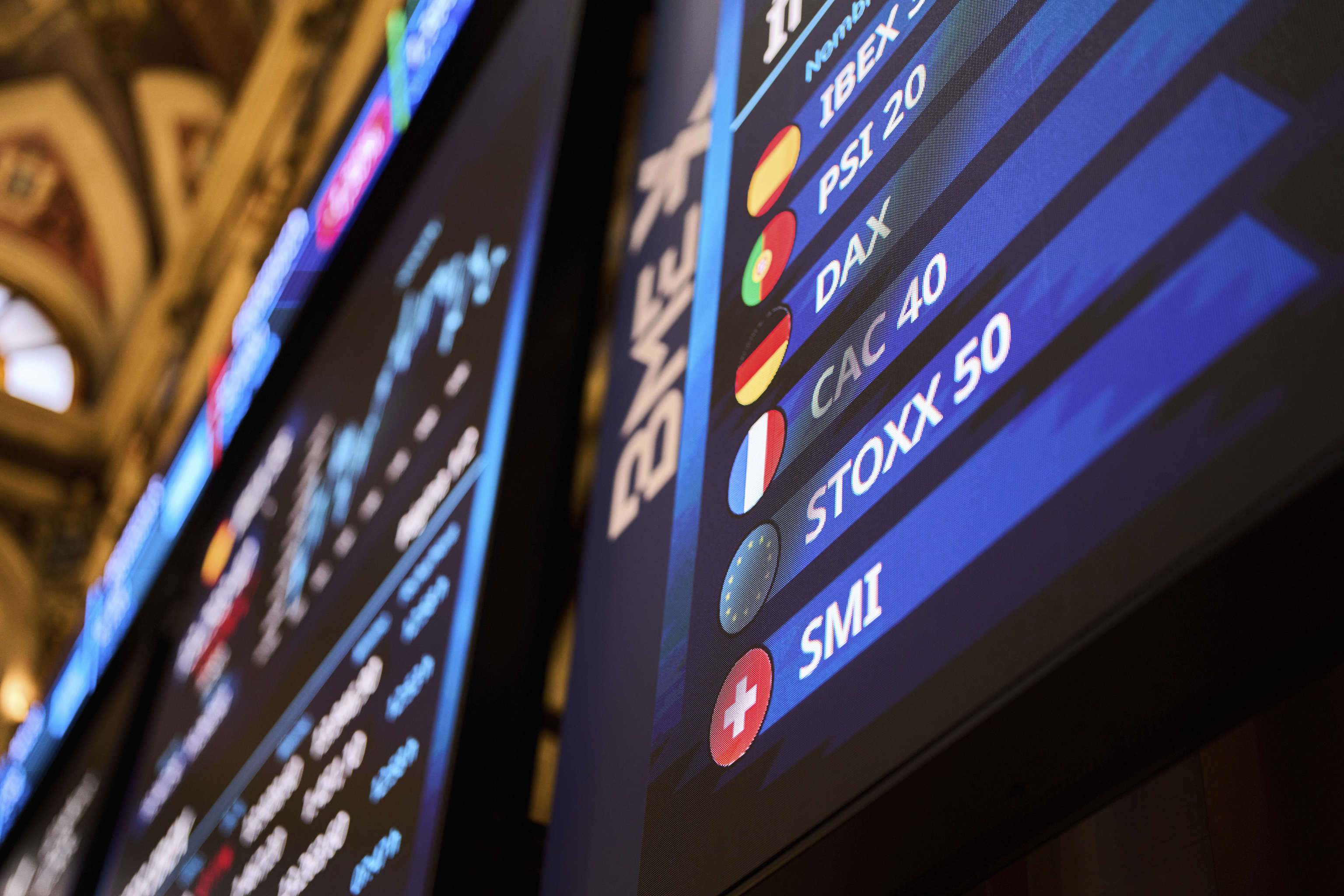European markets continue the stock market crisis that began last week after Donald Trump's Liberation Day. His more aggressive tariff policy than expected caught markets off guard, leading to continuous red numbers. Additionally, this week holds a significant date: next Wednesday, April 9, when the bulk of Trump's reciprocal tariffs come into effect, and markets worldwide are already anticipating their impact.
At the opening of the session, the Ibex 35 started this Monday with a sharp drop of 3.34%, quickly escalating to 5%, settling at 11,811 points. Declines have been widespread in all its companies in the early stages of a session that appears critical. Analysts warn that the Spanish selective index has already lost almost all its 2025 gains.
In Europe, the German Dax began the day with a 7% cut at the opening, followed by further declines, closely followed by the Milan stock exchange. The more moderate declines at the start of the session occurred in the Paris stock exchange with an initial 2% cut.
Analysts expect the declines to worsen throughout today's session.
Before the opening of European markets, Asian markets closed, starting the trend of red numbers for all markets this Monday.
The Chinese stock market sharply declined this Friday, with the Hang Seng index falling by 11% at the close, as Chinese authorities assess how to stabilize the economy and markets. The Chinese Ministry of Commerce in Beijing announced last week that they would respond to the 34% tariffs imposed by the US on Chinese imports with a 34% tariff on all US products, further accentuating the current stock market crisis.
The Nikkei 225 index in Tokyo, representing the 225 most representative companies in the country, started the session with significant losses. At the close of this Monday's session, it dropped by almost 8% (-7.66%). Alongside the Nikkei, the Topix, including the largest capitalized firms in the Japanese market, closed with another serious cut of 7.79%. Additionally, the Kospi, the benchmark index in South Korea, also closed with a 5.57% cut.
Analysts foresee continued high uncertainty and market volatility in the coming days and weeks, given the slim chances of a short-term resolution to the trade war. "We do not believe that tariffs are an end in themselves for Trump's policy, but a way to regain industry and manufacturing employment in the country, for which they also need affordable energy prices and a weak dollar. Undoubtedly, a negotiation period begins in which the American administration will be open to reducing tariffs in exchange for concessions that help them achieve such goals," stated Renta4.
Wall Street experienced its worst session since the Covid-19 pandemic that halted all economic activity last Friday. This Monday, the futures of the American market, crucial for predicting market trends before opening, forecast a very critical day.
At the close of the Asian market, Wall Street futures have already indicated a further weakening of its indices for this day: the S&P 500 future has lost 2.5%, while the Dow Jones has fallen by 2.1%, and greater cuts are expected for the technological Nasdaq, with a 3.1% cut.
The VIX, commonly known as "the fear index," stands at 39 points.
